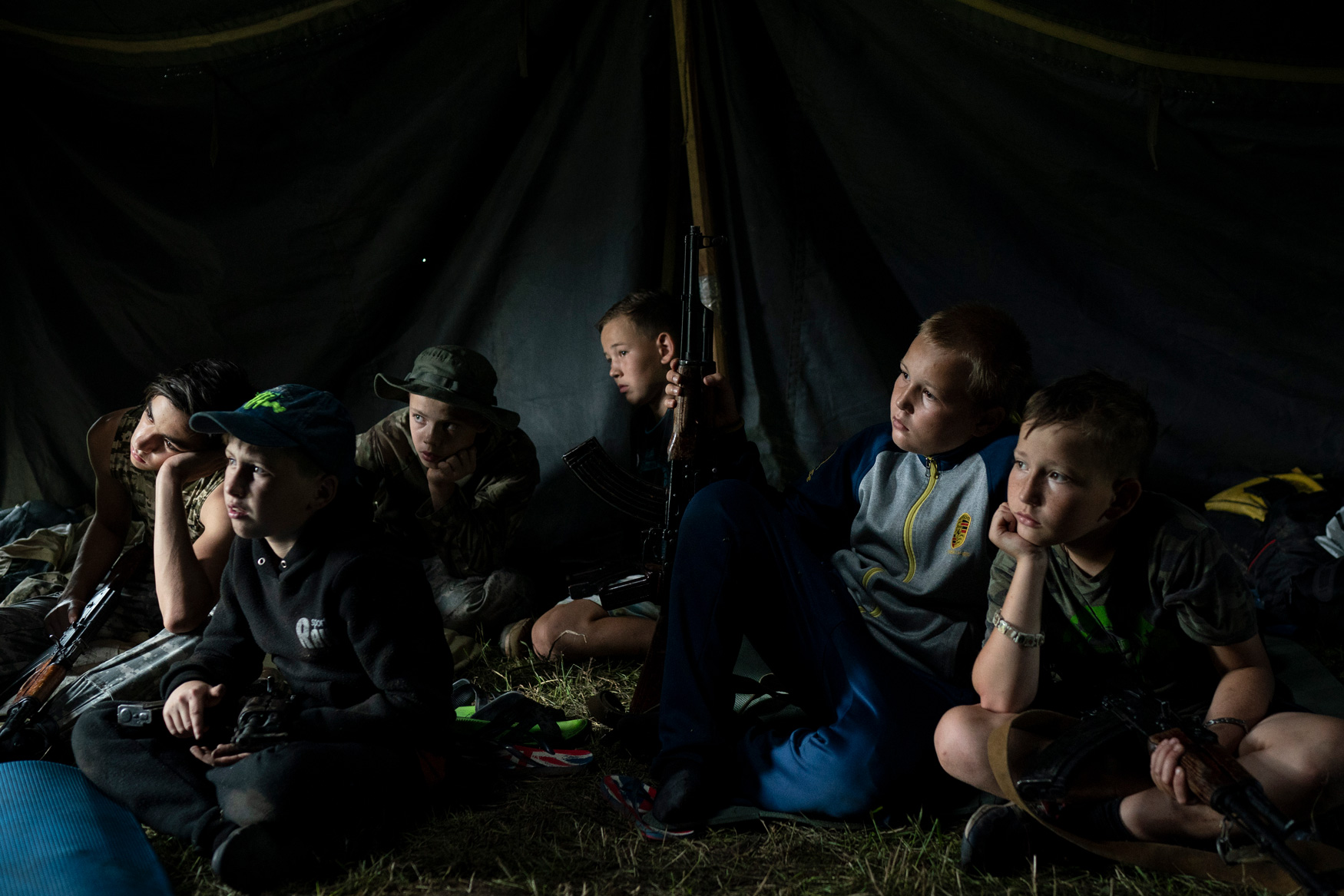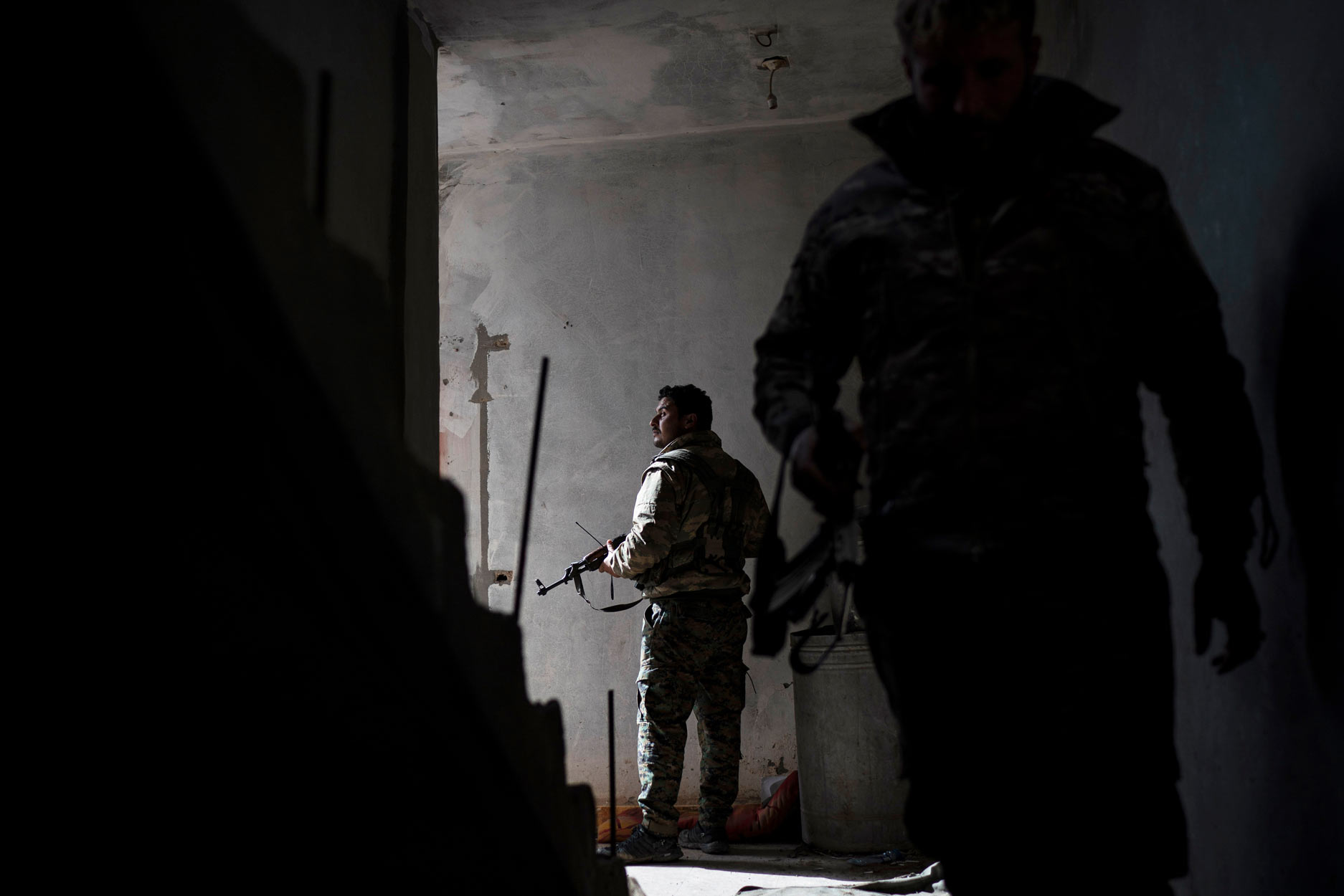Layered portraits of Hong Kong’s masked protesters

For many protesters in Hong Kong, identity is entwined with surveillance.
Their signature masks, umbrellas and top-to-bottom black outfits shield them not only from physical threats like the riot police’s tear gas and rubber bullets, but also from the invisible dangers of government identification and tracking. Each individual melds into a sea of plastic canopies, their faces obscured, anonymous and united in a shared distrust of the authorities.
In smashing, spray-painting and shining lasers on surveillance cameras across the semi-autonomous Chinese city, these demonstrators say they are fighting back against an omniscient state security apparatus that already envelops mainland China.
For more than five months, they have led a mass protest movement that prompted the Hong Kong government to withdraw a controversial extradition bill.
Following this victory, they have persisted in advocating for their four remaining demands, including calls for democratic reforms and an independent probe into police tactics.
Police have arrested more than 3,000 protesters since June, on charges such as illegal assembly and rioting. An attempt last month to impose a city-wide mask ban only further inflamed the demonstrators, who now cover up in defiance.
Curious about the young protesters behind these masks, AP photographer Felipe Dana set out to take portraits of them.
Because many were afraid to bare their faces to the camera, Dana chose to project on them photos snapped during previous demonstrations, inserting an extra layer between them and his lens.
A protester who identified himself as Jason, poses for a portrait as a projector displays a photograph, previously taken during the unrest, over him at a protest, Oct. 16, 2019, in Hong Kong. (AP Photo/Felipe Dana)
Armed with a portable projector, Dana photographed his subjects on the sidelines of street protests, sometimes with tear gas still thickening the air and clashes mere meters away.
They expressed worry that the ruling Communist Party’s watchful eye might be exported abroad via its emerging technologies, like Huawei phones or Tik Tok videos. In China’s far western Xinjiang region, a comprehensive surveillance network _ complete with facial recognition cameras and phone scanning devices _ closely monitors members of Muslim minority groups.
“At the beginning, not everyone wore masks,” said Josephine, a 24-year-old who sported a turquoise surgical face mask.
“But after the police started abusing their rights and arresting more people, we decided to protect ourselves (with the masks),” she said.
“We are afraid of the (mask) law, but we are still coming out because we need to find hope, to find the future of Hong Kong.”
Like the other portrait subjects, Josephine asked not to be identified by her full name because she fears government retribution.
24-year-old protester who identified herself as Kathy, poses for a portrait as a projector displays a photograph, previously taken during the unrest, over her at a protest, Oct. 19, 2019, in Hong Kong. (AP Photo/Felipe Dana)
A protester who identified himself as Eliot, 33, poses for a portrait as a projector displays a photograph, previously taken during the unrest, over him at a protest, Oct. 19, 2019, in Hong Kong. Eliot believes that his role in the protest is to protect the younger demonstrators, “If it’s necessary I can be arrested for them” he says. (AP Photo/Felipe Dana)
Wong Ho poses for a portrait next to a barricade as a projector displays a photograph, previously taken during the unrest, over him at a protest, Oct. 18, 2019, in Hong Kong. (AP Photo/Felipe Dana)
A 14-year-old protester who identified herself as K.C., poses for a portrait as a projector displays a photograph, previously taken during the unrest, over her at a protest, Oct. 16, 2019, in Hong Kong. (AP Photo/Felipe Dana)
A protester who identified himself as Tom, poses for a portrait next to a damaged subway station as a projector displays a photograph, previously taken during the unrest, over him at a protest, Oct. 20, 2019, in Hong Kong. Tom said; “If we don’t wear the mask, the police can recognize you and say you are a rioter and arrest you for no reason, even if you are peacefully protesting. That’s the white terror they want to do.” (AP Photo/Felipe Dana)
A protester who identified herself as Cindy, poses for a portrait as a projector displays a photograph, previously taken during the unrest, over her at a protest, Oct. 19, 2019, in Hong Kong. An attempt last month to impose a city-wide mask ban only further inflamed the demonstrators, who now cover up in defiance. “Wearing a mask right now is a statement against the Emergency Law.”, Cindy said. (AP Photo/Felipe Dana)
A protester who identified herself as Sonia, poses for a portrait next to a broken glass door as a projector displays a photograph, previously taken during the unrest, over her at a protest, Oct. 16, 2019, in Hong Kong. (AP Photo/Felipe Dana)
24-year-old protester who identified herself as Josephine, poses for a portrait as a projector displays a photograph, previously taken during the unrest, over her at a protest, Oct. 19, 2019, in Hong Kong. Josephine said she is afraid of the mask law, “but we are still coming out because we need to find hope, to find the future of Hong Kong” (AP Photo/Felipe Dana)
Visual artist and Journalist





